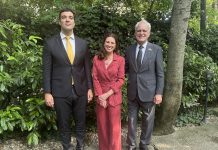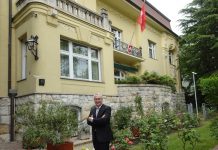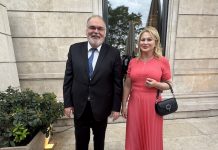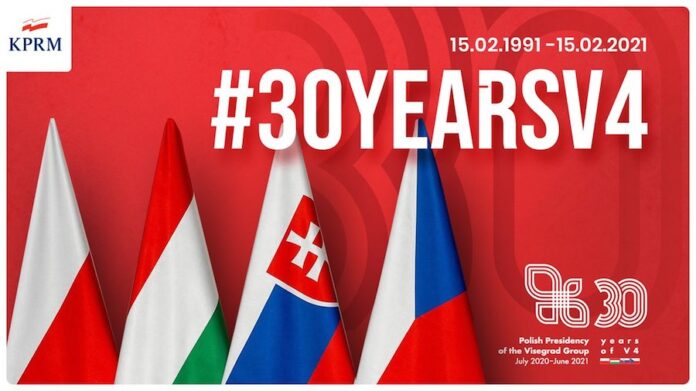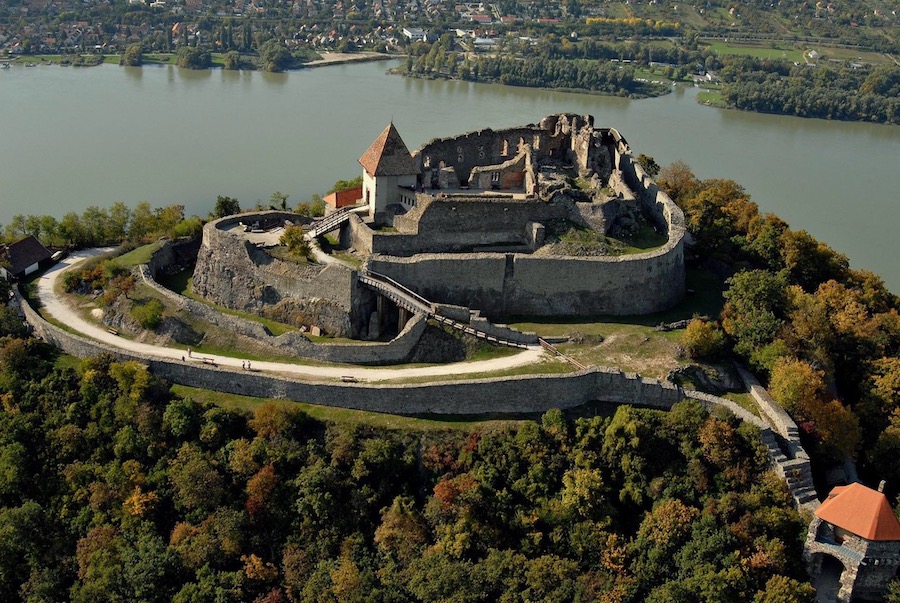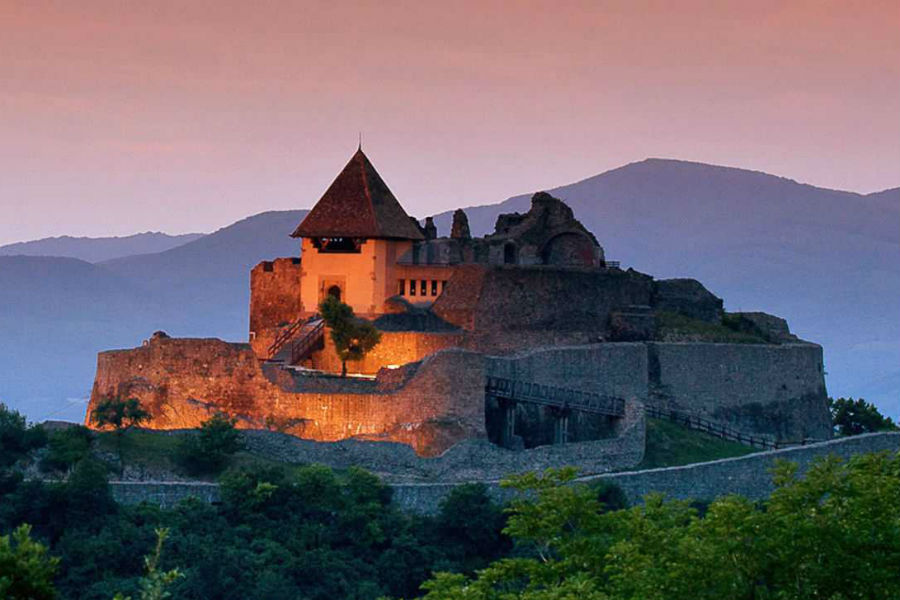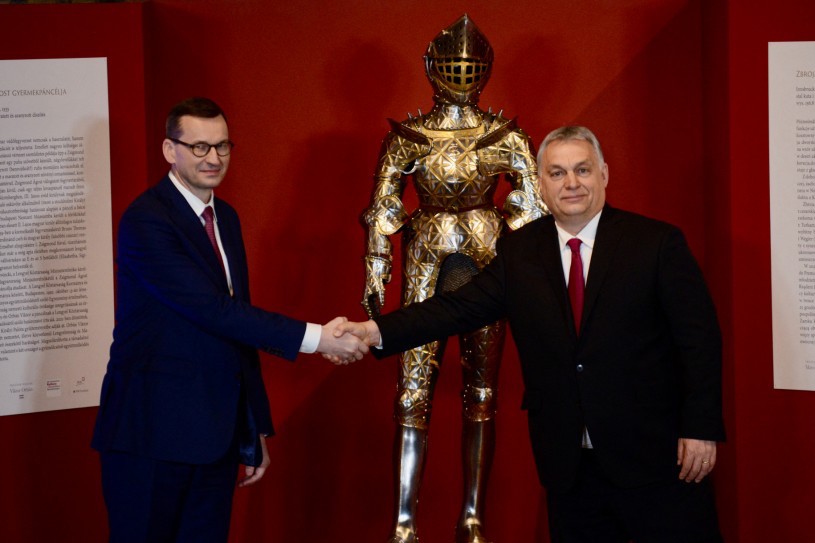On the 15th February 1991, the Visegrad Declaration was signed by the leaders of Czechoslovakia, Hungary and Poland, officially founding the Visegrad Group, also known today as V4.
The Hungarian castle-town of Visegrád in beautiful setting on the Danube bank was the meeting venue for the historical Visegrad Congress of 1335, held between three Kings: John I of Bohemia, Charles Robert I of Hungary and Casimir III of Poland to discuss ways to enhance their trade and political cooperation.
The Visegrad Declaration, signed by Václav Havel, Lech Wałęsa and József Antall a few months before the dissolution of the Warsaw Pact, laid the foundations of a long-term framework for the modern forms of political, economic and cultural cooperation in Central Europe. After the dissolution of Czechoslovakia in 1993, the Czech Republic and Slovakia became independent members of the Visegrad Group, thus increasing the number of members from three to four. Today all four states are members of the EU and the NATO. Currently, Slovakia remains the only V4 country that adopted the euro as its national currency in 2009.
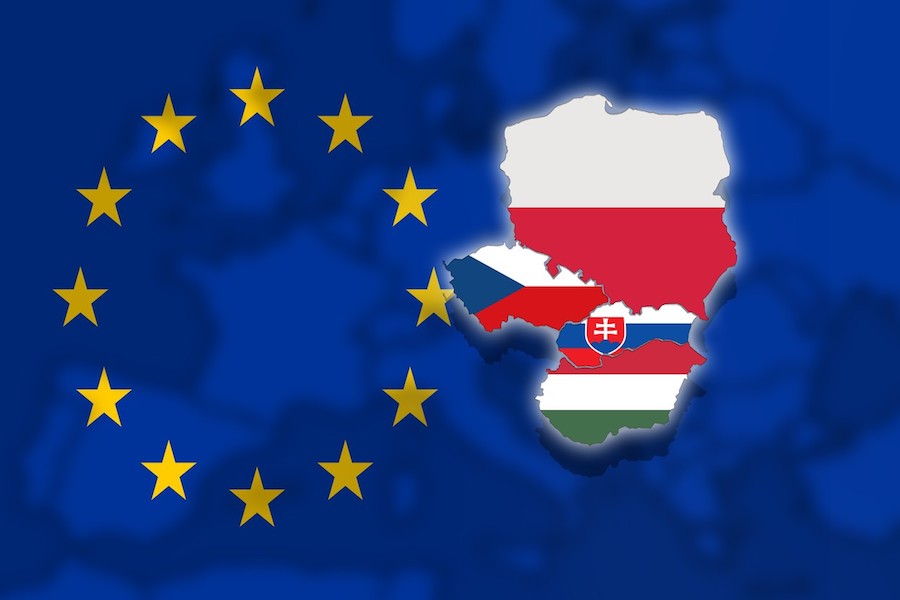
The summit of V4 Prime Ministers took place on 17th February 2021 in the Royal Palace, on the Wawel, in Kraków with the participation of the President of the European Council, Mr. Charles Michel. This high-level forum came in the current Polish V4 Presidency, which runs from July 2020 to June 2021, and was part of the celebrations for the 30th anniversary of the Visegrad Group’s founding. During the meeting, the V4 leaders: the Prime Minister of Poland, host of the event, Mateusz Morawiecki, Prime Minister of Hungary, Viktor Orbán, Prime Minister of the Czech Republic, Andrej Babiš and Prime Minister of the Slovak Republic, Igor Matovič signed the Anniversary Declaration and Digital Declaration, and discussed regional and EU cooperation. The summit was an occasion to summarise the 30 years of multifaceted cooperation between the V4 countries and to politically confirm their will to continue it. “We hereby reaffirm our intention to support the further reinforcement of our mutual intergovernmental and interpersonal cooperation for the benefit of our citizens and countries as well as the EU and NATO.”
On financial matters the leaders said they would like to increase the annual budget of the International Visegrad Fund to EUR 10 million to promote its activities among the younger generations of the group countries.
The V4 heads of government took note of the positive experience of the V4 Information Exchange Centre on COVID-19, which was launched during Poland’s V4 Presidency. They declared their intention to continue to exchange information and best practices on civil protection, crisis, disaster and risk management, particularly as pertains to the COVID-19 pandemic, and coordination of the V4 countries’ crisis response capacities. It was also discussed prospects for strengthening cooperation on cross-border digital projects and took part in a streamed panel on Central Europe’s fast-growing digital creative sector. In this way, the V4 demonstrated its leadership position in advanced technologies in IT sectors and the digital agenda.
The Summit participants welcomed the President of the European Council, Charles Michel as their guest of honour. Key topics of discussion between President Michel and the V4 prime ministers included the current EU political agenda, especially the fight against the COVID-19 pandemic, relations with Eastern Partnership countries and Russia, migration and climate policy. The V4 leaders stressed the Group’s determination to continue working together on Eastern policy. President Michel pledged to leverage the V4’s engagement in this area at EU level.

Prime Minister Viktor Orbán used this solemn occasion of the 30th anniversary of Visegrad Group to hand over a valuable artefact of historic significance to Poland: the child armour of Sigismund II Augustus, King of Poland, as a present, that was kept in the collection of the Hungarian National Museum from the 18th century. The armour was previously believed to have belonged to Louis II, King of Hungary.
Polish Prime Minister Mateusz Morawiecki thanked Viktor Orbán for returning the armour, saying it would henceforth be another symbol of Polish-Hungarian friendship. And he welcomed the return of the armour to the Royal Castle, where Sigismund II Augustus’s ashes are kept. Sigismund II Augustus (1520-1572) was not only King of Poland, but also Grand Duke of Lithuania from 1548 to 1572. The 500th birth anniversary of the last ruler of the Jagiellonian dynasty was celebrated in September 2020.
Anna Popper
Source: Diplomatic Magazine

